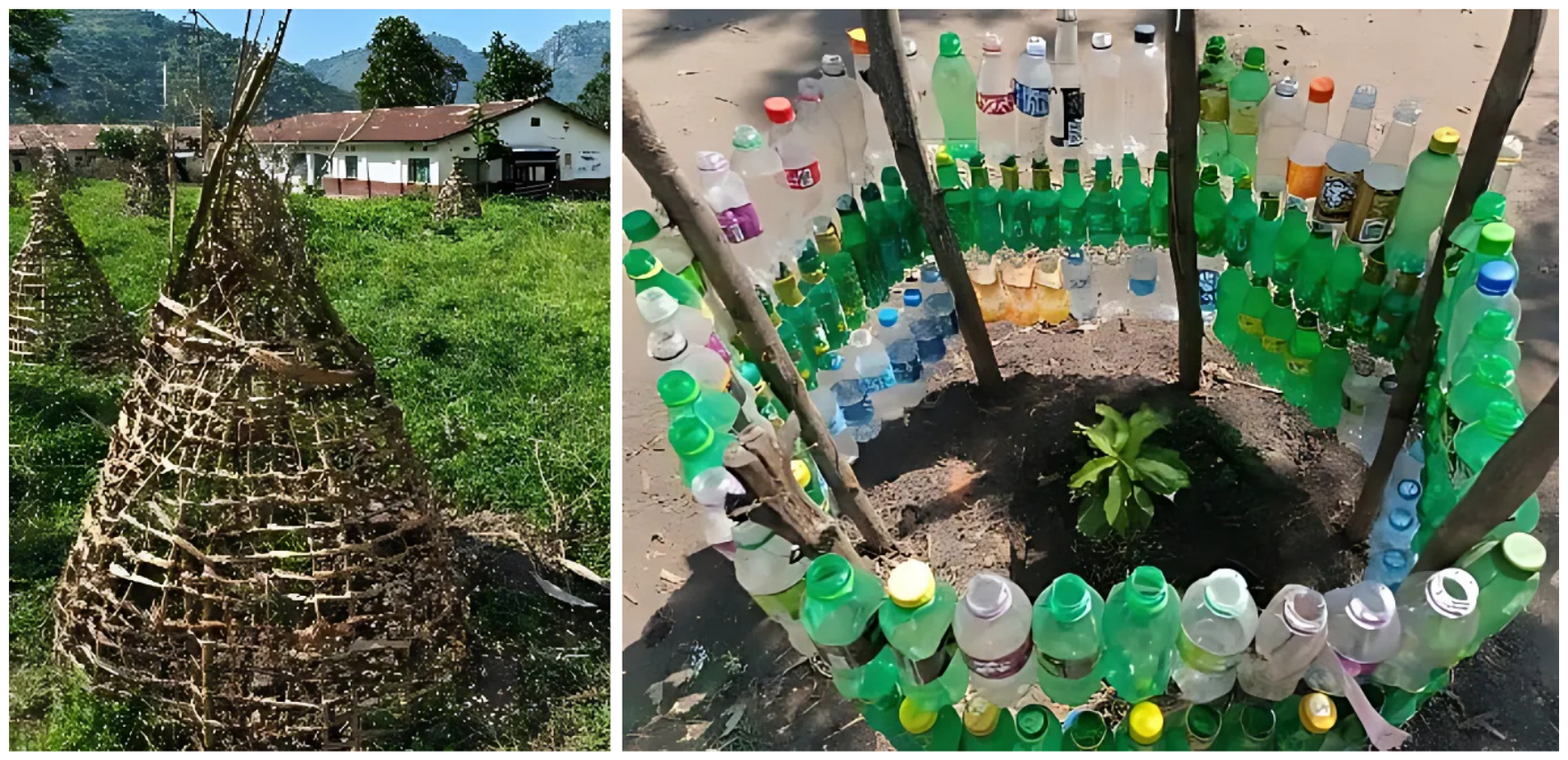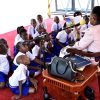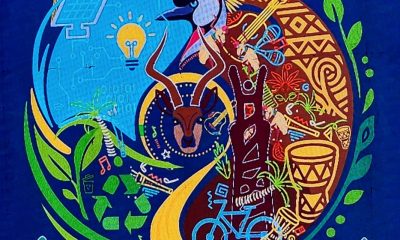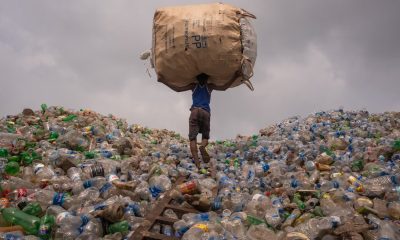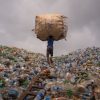Environment
How Kasese Students Are Turning Plastic Waste into Tools to Save the Rwenzori Environment
While innovation often conjures images of high-tech gadgets, schools in Kasese District are redefining the term through a grassroots movement centered on plastic recycling to safeguard the fragile Rwenzori ecosystem.
At the Rural Focus Initiative for Applied Technology (RuFI/RIAT) in Kirembe Cell, students and trainers are transforming plastic waste into eco bricks, mats, chairs, and bins. This initiative not only tackles the district’s growing plastic pollution but also integrates sustainability into the school curriculum, fostering environmental stewardship among young people.
Jovia Biira, a RuFI director, says the project began within the school but has since blossomed into a community-wide effort. “We are turning discarded plastics into building blocks for a sustainable future,” she explained. Local households now use eco bricks to construct facilities such as toilets, improving sanitation with affordable, recycled materials.
To date, RuFI has repurposed more than 40,000 plastic bottles into structures featuring vibrant walls made from layered bottles bonded with cement.
Meanwhile, Muhokya Primary School’s environment club, started by Deputy Head Teacher Kabugho Yodesi, has grown to over 200 pupils actively crafting eco-friendly products like door mats, ropes, and tree shades. Kasese Secondary School’s Nature Club also converts plastic into litter bins and transforms paper waste into reusable paper bags. Senior Five student Martin Kiiza credits his teachers for igniting his environmental awareness, while fellow students Nakawoya Natasha and Gloria Ngabire stress the vital role of youth in battling plastic pollution.
Since 2023, Muhokya Primary has collected over five truckloads of plastic waste, with pupils spreading recycling practices within their families.
Kasese, a prominent tourist hub home to Queen Elizabeth and Rwenzori Mountains National Parks, among others, faces growing environmental threats from plastic pollution. Winds carry plastics into lakes and rivers, endangering aquatic life. Joreme Bwambale, Director of the Rwenzori Royal Institute, highlights efforts to restore wetlands and educate communities on proper waste disposal.
Sociologist Patrick Nyamunungi of China Railway 18 Group attributes increasing urban plastic waste to the closure of manholes once used for dumping, leading to plastics blocking drainage and damaging roads.
Agriculture classes at Kasese Secondary School are utilizing recycled plastics for backyard gardening, with some students already earning income by selling products like paper bags, according to Career Department Head Lawrence Kalenzi.
Yosia Kibakuli from Caritas Kasese Diocese warns of rising microplastic consumption among people—equivalent to ingesting a credit card weekly—and champions behavioral change and community recycling skills.
Environment Officer Evelyne Mugume notes that while few schools have fully embraced conservation, trained students are extending environmental awareness into their communities.
Globally, plastic pollution has devastating impacts: thousands of seabirds, turtles, and marine mammals perish annually from plastic ingestion or entanglement, and a 2021 study found that 60% of stray cattle deaths in Uganda result from consuming polyethene bags. Alarmingly, only 9% of the over 8.3 billion metric tons of plastic produced worldwide in the last 60 years has been recycled.
Kasese Municipality Mayor Chance Kahindo lauds student initiatives for visibly reducing plastic waste and decongesting the town while raising environmental consciousness.
This story was produced with support from Media in Cooperation and Transition (MiCT), Berlin, Germany, under the Niles 2024–2025 project, “Strengthening Media Capacities and Networks in the Nile Basin.”
Comments



